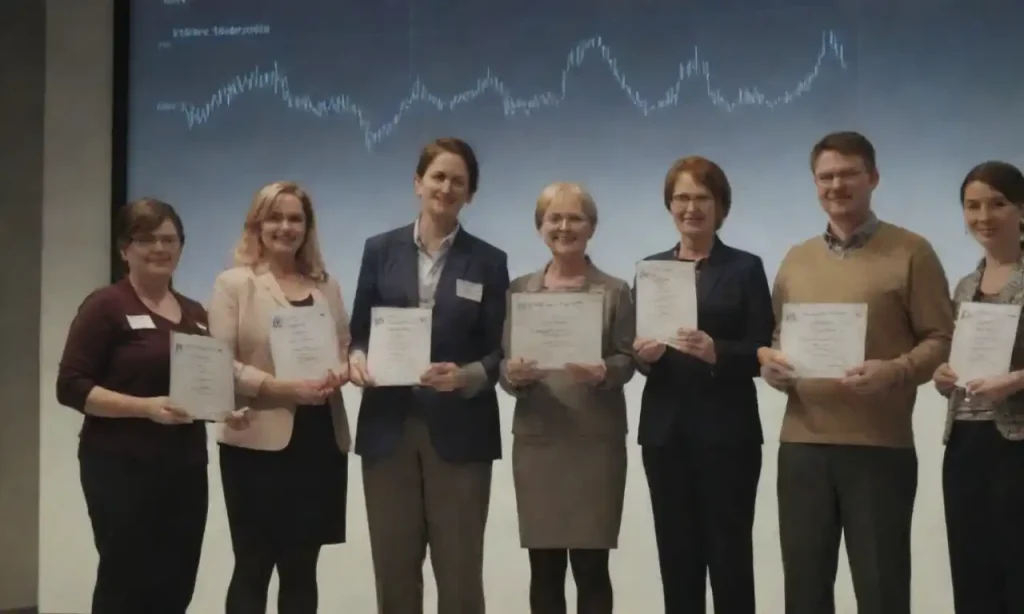Acknowledging Volunteer Contributions in Asset Management

In the world of asset management, where every decision may have profound implications for financial and organizational health, the role of human capital cannot be overstated. This is especially true for organizations that leverage the power of volunteers to bridge gaps in expertise, labor, and community engagement. Volunteers not only bring a wealth of skills and knowledge but also a passion for the mission at hand, providing an invaluable resource that goes far beyond monetary contributions. Acknowledging these volunteers formally and informally is paramount, as it not only enhances their experience but also reinforces their investment in the organization’s success.
This article delves into the multifaceted importance of recognizing volunteer contributions in asset management, explores various strategies through which organizations can effectively acknowledge involvement, and emphasizes the broader impact of these practices on both volunteers and the organizations themselves. By examining the processes and benefits of such recognition, we aim to equip asset management professionals with a framework for fine-tuning their volunteer engagement strategies.
The Significance of Volunteer Contributions in Asset Management
Understanding the significance of volunteer contributions in the asset management sector begins with a realization that these individuals often fill essential roles that facilitate the smooth operation of various initiatives. Volunteers can encompass a diverse group that includes financial professionals, community members with relevant experience, and advocacy leaders who are passionate about the organization’s goals. When volunteers step into asset management roles, they bring unique insights and perspectives that are invaluable for decision-making processes.
The integration of volunteer work into asset management strategies can lead to innovative solutions and more effective implementations of initiatives. For instance, volunteers may offer operational efficiencies that may not have been considered by paid staff, given their fresh perspectives and diverse professional backgrounds. Moreover, their contributions can enhance the organization's credibility by demonstrating a commitment to community involvement and servant leadership. The broad skill sets brought by volunteers may include financial analysis, risk assessment, and strategic planning, all of which can augment the capabilities inherent in traditional asset management frameworks. Ultimately, acknowledging these contributions fosters a supportive environment that encourages ongoing volunteer engagement and retention.
Ways to Recognize Volunteer Efforts
To enhance the experience of volunteers in asset management, organizations must explore various effective methods of recognition. These methods serve not only to appreciate the contributions of volunteers but also to motivate their continued participation. One prominent method is through public acknowledgment during meetings or events. Highlighting individual contributions in front of peers reinforces the value of their efforts, and such recognition can create a culture where volunteer work is truly appreciated. This can be particularly impactful in environments where collaboration and teamwork are essential.
Moreover, offering structured programs that facilitate professional development opportunities is a powerful recognition tool. Providing access to training, seminars, or workshops not only builds skills but also signals that volunteers are valued contributors who warrant investment. Asset management organizations can amplify this recognition by providing certificates or awards that volunteers can showcase on their resumes or LinkedIn profiles, further legitimizing their contributions. These formal recognitions present a win-win scenario, where volunteers gain a sense of accomplishment and the organization benefits from motivated, well-informed participants.
The Psychological Impact of Volunteer Recognition
The psychological impact of recognizing volunteer contributions should not be underestimated. Volunteers function not only out of a desire to support a cause but also derive personal satisfaction and a sense of belonging through their work. When organizations actively recognize these contributions, they cultivate an environment that fosters a sense of community and belonging. This can lead to enhanced volunteer morale, and ultimately, to increased retention rates.
Recognition can function as a form of positive reinforcement that encourages increased commitment to the organization’s mission. The gratification of being acknowledged can significantly boost volunteers' self-esteem and make them feel more integral to the team. This psychological benefit contributes to a more enthusiastic and dedicated volunteer base, instilling a sense of loyalty that compels them to continue their support over time. Additionally, when volunteers feel valued, they are more likely to engage in advocacy efforts, pulling in friends or colleagues to join the cause and further expanding the organization’s reach.
The Broader Impact of Acknowledging Volunteer Contributions
The broader impact of recognizing volunteer contributions extends beyond the immediate benefits felt within organizational boundaries. Asset management organizations that adopt recognition practices enhance not only their internal culture but also their reputation within the community. By placing value on volunteer efforts, they foster a public image of being inclusive and community-oriented, leading to greater outreach, increased volunteer recruitment, and potentially stronger donor relationships.
Moreover, when organizations make volunteer acknowledgment a priority, it leads to higher general awareness of the role of volunteerism in asset management. In a world increasingly leaning towards social responsibility, highlighting the partnership between volunteers and organizations underlines the critical importance of community engagement. This visibility can inspire more efficient collaboration between diverse stakeholders, creating a networks-based environment where ideas and assets are easily shared and utilized. The act of highlighting volunteer contributions, therefore, becomes a catalyst for broader social change within the asset management sphere.
Conclusion: Investing in Volunteer Recognition
In conclusion, recognizing volunteer contributions in asset management is a crucial practice that yields benefits for both the volunteers and the organizations they support. From enhancing volunteer morale and retention to impacting organizational reputation and community involvement, the advantages of acknowledgment are manifold. As asset management professionals implement strategies to formally and informally acknowledge the work of volunteers, they effectively invest in the mission and goals of their organizations. This practice not only strengthens the innate ties between the organization and its volunteers but also enriches the broader asset management landscape, fostering an environment ripe for collaboration, innovation, and impactful community engagement. Acknowledgment is more than a mere formality; it is a cornerstone of resilience and growth in the sector, one that can transform the impact of volunteerism into a sustainable force for good.

Leave a Reply